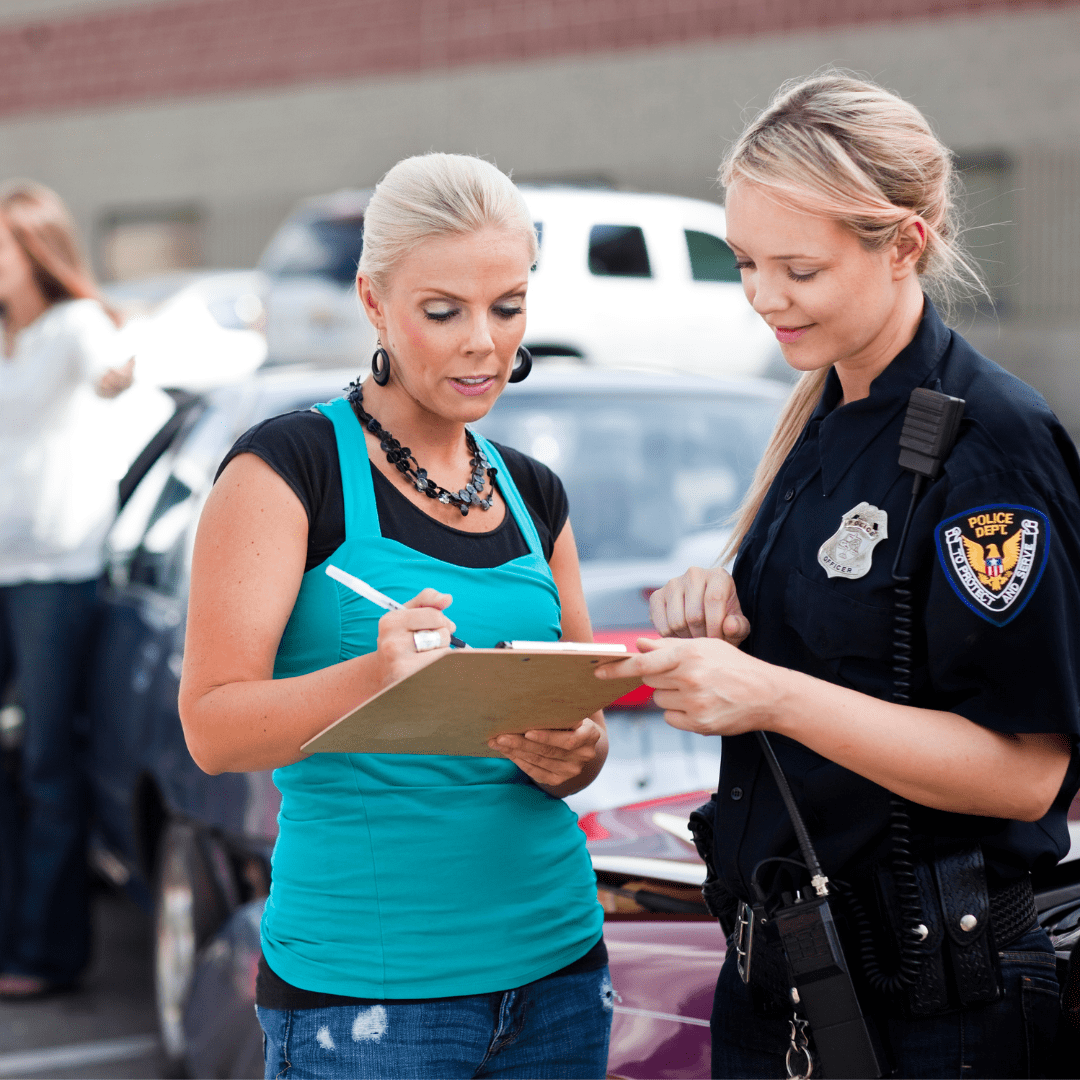“Nathan is a father of two heading home from work. Tired, hungry, and just trying to make it back home safe, he’s surprised when a cop car pulls him over. He hasn’t done anything wrong. As the officer sits in their car setting up a report, the only thing he wants to do right now is make it back safely.”
Sometimes we find ourselves in the wrong place at the wrong time. It’s times like these when interacting with the police that it’s extra important to keep a calm, cool demeanor. Here’s a few tips to help you (and Nathan) get out of this uncomfortable situation.
1. Take a deep breath
“Nathan took a second to readjust himself. He took a deep breath, counted to 8, then exhaled. He repeated this a few times, and by the time he saw the officer step out of his vehicle, Nathan had steadied his breathing”
If you’re stressed or nervous, it’s okay to take a moment to calm yourself. Deep breathing can be a good way to steady your breathing and calm your nerves. If you have other techniques that you know can calm you down, great! Now would be the time to use them.
Keep in mind to be careful using anything that might hinder your ability to talk or might be seen as disrespectful, such as smoking, chewing gum, or similar acts.
2. Be prepared to talk to the officer
“By the time the officer got to his window, Nathan had done all he could to ensure clear communication. The window was down, the radio was off, and his hands were clearly on the steering wheel. His phone was also in the passenger seat, recording the interaction.”
When police first walk up to your window, having a few things already prepared can help the interaction start on a good note. These can include:
- Turning off the radio or any music that might be distracting
- Turning on the overhead light if it’s dark out
- Have your license and registration ready
- Putting your arms up and out clearly, like on the steering wheel
- Having someone stay quiet and start recording
For that last point, if you’re alone you can try recording it by placing your phone nearby or on the dashboard. Although you can legally directly film the officer, as long as you don’t interfere with his or her investigation, this could be taken as provoking or rude behavior, so take care when doing so.
3. Speak in a calm and even tone
“As the officer spoke to him, he responded calmly and evenly, making sure to respond as respectfully as he could. Each time a question was asked, Nathan answered clearly and as much as he was comfortable answering.”
Speaking in a calm and even manner can help set the standard for communication. While the officer is usually the first one to speak, responding calmly can help guide the rest of the conversation. Yelling or raising your voice, even if you feel like you’re being unfairly treated, can serve to escalate the situation, and give the police justification for their own escalation.
4. Don’t give in to goading, keep calm and carry on
“Much to his surprise, the more he answered the more the officer seemed to get agitated. From what he could tell, the officer was looking for a suspect that looked like him and his car, and was apparently still trying to decide if Nathan was the suspect or not. As the officer continued to poke and prod, Nathan stood his ground and kept calm, asking if he was free to go after all the questions. The officer, disappointed, said yes. With that, Nathan drove off towards his home, but not before remembering to file a complaint with the police department.”
Sometimes police officers will be aggressive in their questioning. In times like these, it’s important that you don’t match their energy. It can help to try and guide the interaction from your side by keeping calm yourself, and whenever possible, ask if you are free to go. If you need to complain about the officers, do so after you’ve gotten safely home. In this case, it’s much better to raise your pen than your voice.
If you need a refresher on what your rights are when you’re interacting with police, here’s our blog on that!
5. If there is someone else with you
“Nathan’s friend Sarah was sitting in the passenger seat when Nathan was pulled over. She proceeded to pull out her phone and record the interactions between Nathan and the police. Sarah and Nathan both knew that she had a right to record everything as long as she did not interfere in the interaction. She did this by staying silent and in the passenger seat, but continuing to record. This made Nathan feel a bit safer knowing that Sarah was recording, just in case anything did happen.”
You have a right to record whatever you want during an interaction with the police, as long as you don’t interfere with their investigation. If the cop says to not record because you are the main person being spoken to, consider giving the phone to someone else who is not involved. If there is no one else with you, you have a right to place the phone in a location while it is still recording. The police can not turn your recording off or force you to not record.
